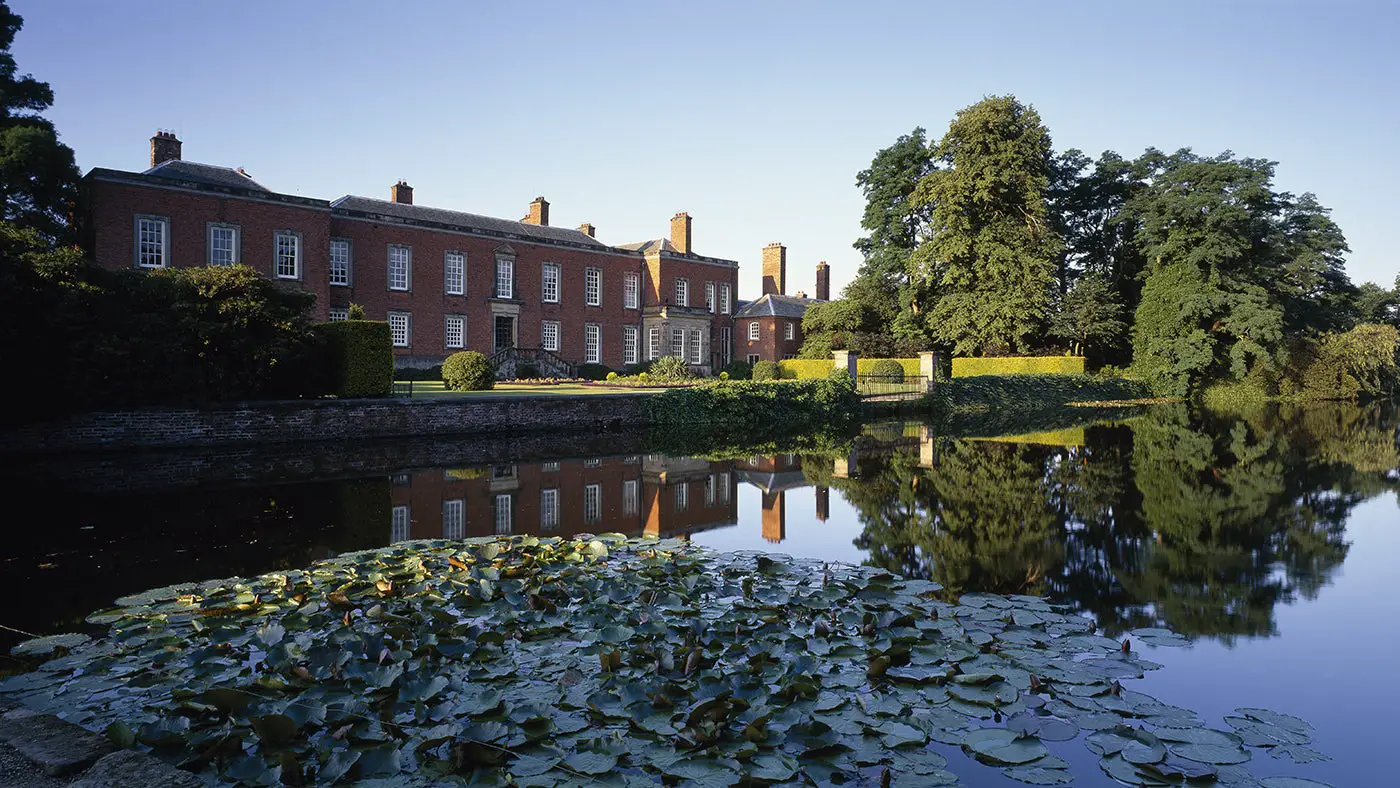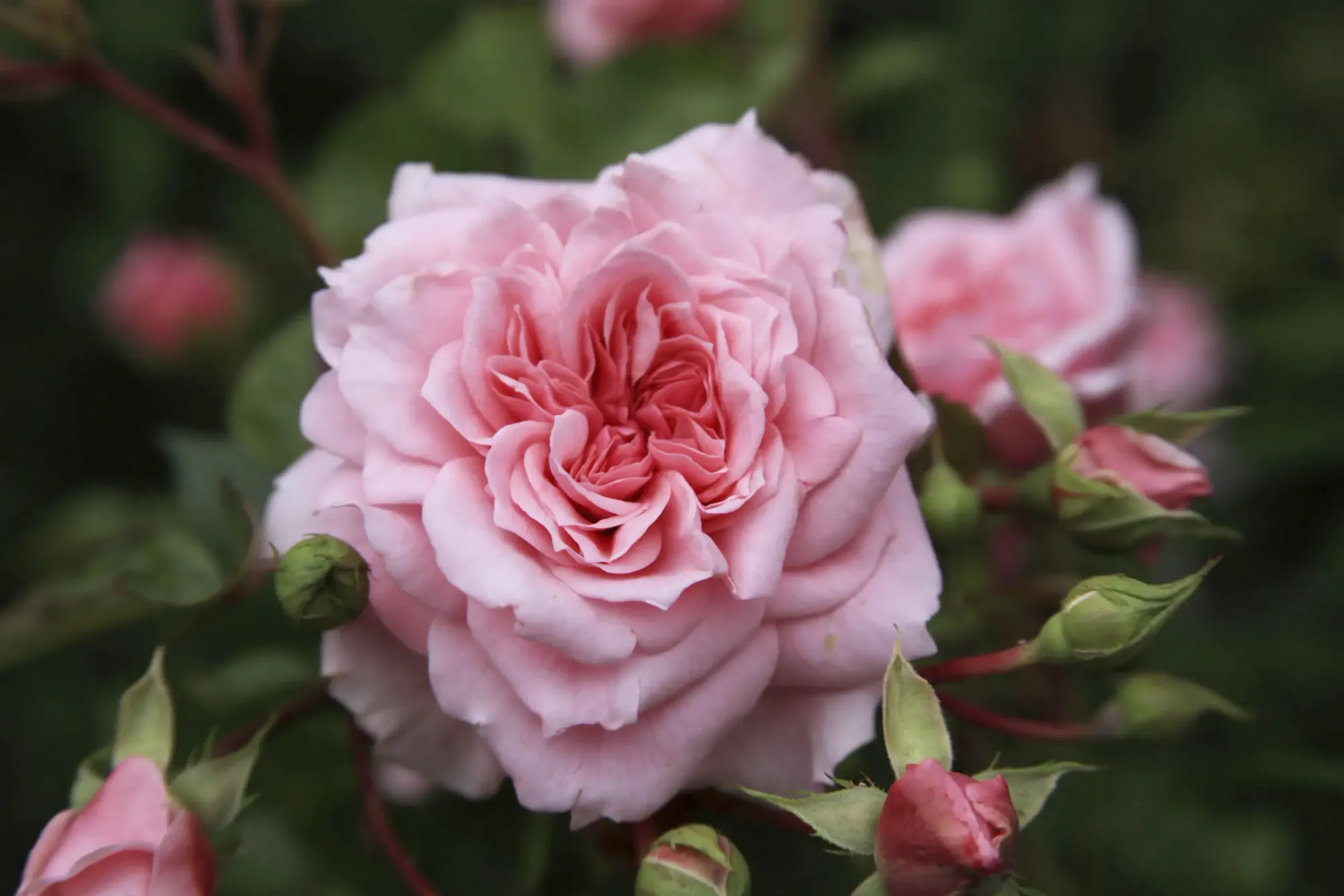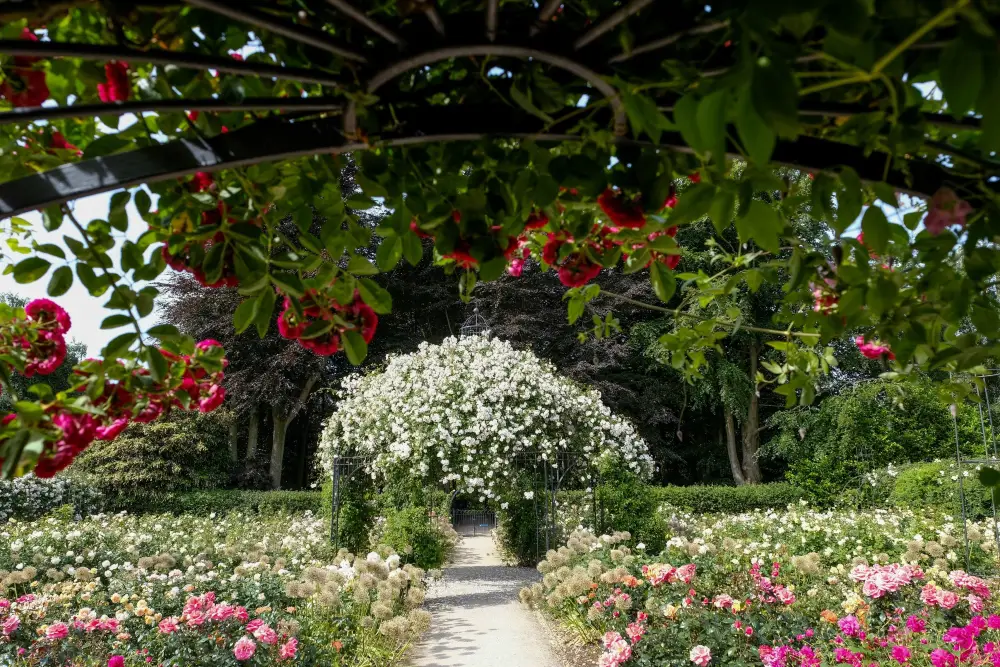The gardens at Dunham Massey are in their full splendour at this time of the year.
And over the summer holidays it’s worth a trip down to the Altrincham-based National Trust property to see them in all their glory – or to enjoy any number of activities over the summer.
We wanted to know more about what goes on behind the scenes of the Dunham Massey Gardens – so we caught up with Head Gardener, Emily Chandler, to find out more.
ALTRINCHAM TODAY: What’s looking best at this time of year in the garden?
EMILY CHANDLER, HEAD GARDENER: July and August is the time that the late herbaceous borders begin to flower. The saloon borders burst into life with hot colours set against the brickwork of the house. Although the rose garden has finished with its first flush of flowers, most of the varieties will keep flowering throughout the summer – as long as there are enough gardeners and volunteers to keep on top of the deadheading!

AT: What is unique to the Dunham Massey garden at this time of year?
EC: The combination of different styles is one of my favourite things about Dunham. The woodland garden, interspersed with the more formal bedding and borders such as the saloon and the parterre. You can get lovely views of the parterre from the windows in the Great Gallery inside the house.
Alongside the classic mophead and lacecap hydrangeas, we have an interesting collection of Hydrangea aspera and Hydrangea paniculata, which tend to have much larger flower heads. In the bog garden you can see some unusual flowers from different mountainous regions, such as himalayan ginger and willow gentian.

The end of August signals the change of season in the winter garden with bulbs, such as cyclamen and colchicum beginning to show. Berries are appearing on shrubs such as the euonymus and if you’re lucky you might just catch the scent of candy floss as the katsura trees begin to change colour. It is definitely worth returning in the following months to see the garden transform into something completely different.
AT: What is your favourite place to relax in the garden at this time of year?
EC: I love the winter garden in July and August. The canopy of trees provides plenty of shade which keeps the area cool throughout the hot summer months. The many varieties of fern create a tapestry of different greens. For sun seekers, the main lawn is the best place to bring a picnic blanket and relax surrounded by the sounds and smells of summer.

AT: What top tips can you give people at home for encouraging nature into the garden?
EC: To encourage nature into your own gardens, I would suggest hanging up a simple bird feeder to attract small birds, as well as planting native shrubs and trees. Late flowering perennial plants such as rudbeckia provide late nectar and pollen sources when many of our native wildflowers have finished flowering. Later in the year, a key tip is to leave the stems of grasses and perennials over winter. These are great for hibernating insects and look beautiful too.
During quieter times, the Dunham Massey garden is a perfect place to spot wildlife. The meadows will be brimming with toads and frogs, kingfishers dashing along the canal, and there are many small birds whose young will be starting to fledge. Even the smallest ponds in your garden would be great for amphibians and bird life.

AT: What does a day in the life of a Dunham Massey gardener look like at this time of year?
EC: Summer is not the most exciting time of year to be a gardener at Dunham! Our day tends to begin with the mowing and edging of lawns, which we try and do before the visitors arrive. After that you’ll usually find us deadheading in the rose garden – staff and volunteers spend over 75 hours a week on this task. Other than that, we are generally just trying to keep on top of the weeds and making plans for changes we are going to make over autumn and winter – we always have one eye on the future.
For full details of visiting Dunham Massey’s gardens and all the activities taking place over the summer, visit the website here.









